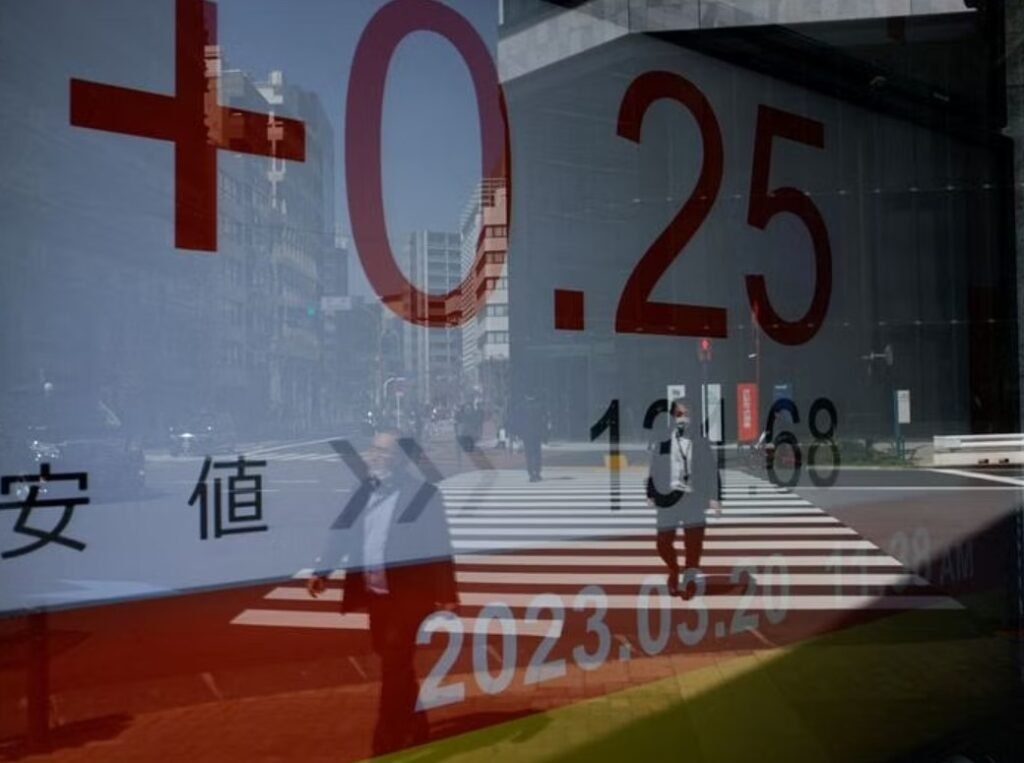Global markets were mostly higher on Tuesday as investors weighed the impact of the escalating conflict in the Middle East on oil prices and economic recovery. Oil surged to a seven-year high as Israel and Hamas exchanged fire, raising fears of a wider regional war.
Oil prices soar amid supply concerns
Brent crude, the international benchmark, rose 4.6% to $92.58 a barrel, its highest level since October 2014. West Texas Intermediate, the US benchmark, gained 4.3% to $87.41 a barrel, its highest since November 2014.
The surge in oil prices was driven by concerns that the conflict could disrupt oil supplies from the Middle East, which accounts for about 40% of global production. The region is also home to major oil transit routes such as the Suez Canal and the Strait of Hormuz, which could be affected by military tensions.
Analysts said that the oil market was already tight due to strong demand recovery from the pandemic and limited output from OPEC and its allies. The group, known as OPEC+, agreed in April to gradually increase production by 2.1 million barrels per day from May to July, but some members have struggled to meet their quotas.
“The oil market is in a bullish mood as the demand outlook improves and OPEC+ maintains its discipline,” said Hussein Sayed, chief market strategist at FXTM. “However, the risk of a supply shock from the Middle East conflict cannot be ignored, especially if it spreads to other countries in the region.”

Stocks rise on earnings optimism
Despite the spike in oil prices, global stocks were mostly higher on Tuesday as investors focused on positive corporate earnings and economic data. The MSCI World Index, which tracks shares in 49 countries, rose 0.6% to a record high.
In Asia, Japan’s Nikkei 225 index gained 0.7%, China’s Shanghai Composite index added 0.4%, and Hong Kong’s Hang Seng index advanced 1.4%. In Europe, Germany’s DAX index climbed 0.9%, France’s CAC 40 index rose 0.7%, and Britain’s FTSE 100 index edged up 0.1%.
In the US, futures pointed to a higher open for Wall Street, with the Dow Jones Industrial Average, the S&P 500 index, and the Nasdaq Composite index all up about 0.4%.
Investors were encouraged by strong earnings reports from major companies such as Walmart, Home Depot, Macy’s, and BHP Group, which beat analysts’ expectations and raised their outlooks for the year. The earnings season has been largely positive so far, with more than 80% of S&P 500 companies beating estimates.
“The earnings season has been impressive and has shown that corporate America is recovering faster than expected from the pandemic,” said David Madden, market analyst at CMC Markets UK. “The upbeat mood has also been supported by upbeat economic data from the US and China, which have shown signs of robust growth and consumer spending.”
Middle East conflict remains a risk factor
However, analysts warned that the situation in the Middle East could still pose a threat to global stability and growth if it escalates further. The conflict between Israel and Hamas has entered its second week, with no signs of a ceasefire or diplomatic intervention.
The violence has killed more than 200 people so far, mostly Palestinians in Gaza. Israel has launched hundreds of airstrikes on Gaza, targeting Hamas militants and infrastructure. Hamas has fired thousands of rockets at Israel, some reaching as far as Tel Aviv and Jerusalem.
The conflict has also sparked unrest in Israel’s mixed Jewish-Arab cities, where mobs have attacked each other and burned cars and shops. The Israeli government has declared a state of emergency in some areas and deployed border police to restore order.
The international community has expressed concern over the humanitarian crisis in Gaza and called for an end to the hostilities. US President Joe Biden spoke to Israeli Prime Minister Benjamin Netanyahu on Monday and expressed his support for Israel’s right to defend itself, but also urged him to seek a de-escalation.
“The US is working with Egypt and other countries on ending hostilities,” Biden said. “We also believe Palestinians and Israelis equally deserve to live in safety and security.”
Analysts said that the US role was crucial in resolving the conflict, but also noted that Biden faced challenges in balancing his support for Israel with his commitment to human rights and democracy.
“Biden is walking a fine line between maintaining his alliance with Israel and addressing the concerns of his progressive base and allies in the Middle East,” said Nader Hashemi, director of the Center for Middle East Studies at the University of Denver. “He needs to show more leadership and pressure on both sides to stop the violence and resume peace talks.”
